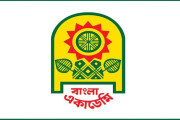Tripura grows an estimated 1.28 lakh MT pineapples every year, in orchards spanning 8,800 hectares.
Debraj Deb, Agartala: To intensify pineapple cultivation in the state, the Indian Council for Agricultural Research (ICAR) centre in Tripura has designed a high-density, weed-resistant, climate-resilient pineapple cultivation technology.
Tripura’s ‘queen’, or queen pineapple, was declared ‘state fruit’ by President Ramnath Kovind in 2018. However, the traditional cultivation practice has to deal with a lot of weeds and wild vegetation, leading to moisture wastage, low growth and a host of other problems.
The new cultivation protocol, according to officials, ensures total weed suppression, soil moisture conservation and prevention of soil moisture evaporation during heat waves.
The ICAR project started in 2018, when around 2,000 pineapple plants were grown on a test plot of 0.20 acre at the government body’s complex in Lembucherra village in Tripura West district. An official said two years later, it has paid off.
Speaking to Biswajit Das, ICAR’s Principal Scientist, explained that in the new process, the plant bed has to be treated and processed prior the cultivation.
Once the plants are ‘established’, no weed grows in the plot at all, cutting down on manpower use, increasing cost efficiency and ensuring effective soil nutrient management, he said.
“In the new method, a black polypropylene sheet is placed on a raised soil bed before planting the pineapple plant. The plants are sown using planting suckers through the polypropylene sheet, which prevents any weed growth,” the scientist said.
This method allows for use of both organic and chemical fertilisers in soil preparation. Vermi compost, cowdung manure or poultry manure can be used for organic cultivation while Urea, Potash, SSP etc. are the chemical fertilisers that can be chosen.
Das explained this method ensures bigger growth of pineapples – upto 1.5 kg for the kew variety and 1.2-1.4 kg for Tripura’s very own ‘queen pineapple’.
This is likely to help Tripura’s pineapple growers, who complain of the small fruit size impacting demand. Also, the method promises a higher yield.
According to officials, the ICAR system ensures 43,000 plants per hectare, while in the traditional method, a maximum of 25,000 plants can be grown on a hectare.
A senior government official, who didn’t wish to be named, said the ICAR research holds high potential and is likely to become popular among farmers once they practise it and are reassured of the cost efficiency.
Tripura grows an estimated 1.28 lakh MT pineapples every year, across 8,800-hectare orchards in different districts. Some of these orchards are run by the government, but most are privately owned. Over 4,000 people are directly connected to the cultivation of the fruit here.










































































































































































